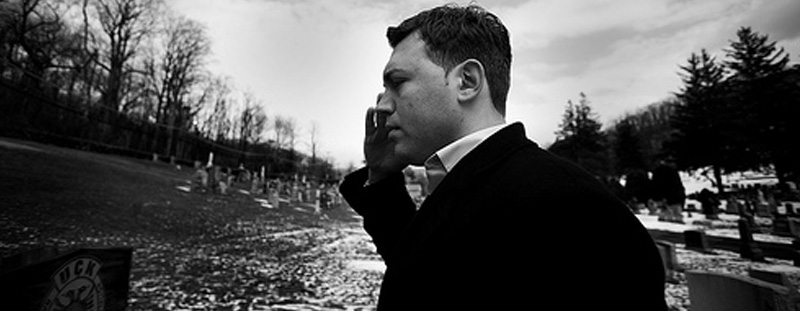For vets of the Atlantic Battallion of the Kosovo Liberation Army, their nation’s hard-won birth is a personal victory.
Around a hundred of them went. They left their wives, children, friends, girlfriends. Some left school, others their jobs, and flew halfway across the world to fight in a war for, they say, their people, their identity, and their independence.
That independence was to come at a cost, and not until a decade later. But when it did happen this February, the weight that had held so many in the past lifted.
For 30-year-old Florim Lajqi (pronounced Lie-chee) of the Bronx, it meant friends he’d lost in the war “would be given a proper peace.” He was one of the thousands to fight for the Kosovo Liberation Army against Serb forces in the 1999 Kosovo war, and he was part of the Atlantic Battalion from New York to make the trip to the front lines. But after he returned to New York following the war, the mission never felt as if it were accomplished.
Kosovo came under UN administration and for years remained a part of Serbia. When the former province at last became an independent country earlier this year, Florim felt obligated to return there to witness its birth in person. It was a moment he’d fought for, and a day his friends died fighting for—and he would bring back with him the soil, a part of the earth, from a liberated Kosovo for the people who’d sacrificed their lives.
Florim knew that the moment war in Kosovo became inevitable in 1998, it was his responsibility to drop his life in New York and answer to the growing conflict’s beckoning call. It was a simple choice for the then 21-year-old to join the small contingent of Albanian Kosovar fighters, even though he had, by then, spent most of his life here in the United States, and was attending John Jay College in Manhattan. Florim was urged on by a sense of duty and impassioned by the stories he’d grown up listening to about the events ravaging the Balkans.
His father told of the atrocities the Serbs were committing as the dissolution of Yugoslavia yielded wars from Croatia to Bosnia, and later in Macedonia. The Serbian province of Kosovo however, though experiencing suppression from Belgrade, remained untouched by open conflict until 1998—but it was not at all insulated from the events happening across the region.
As the war raged on in Bosnia, the ethnic Albanians of Kosovo, who make up roughly 90 percent of the population, took a different approach to handling Belgrade’s policies. While some called for outright independence, most actively rallied for a return of autonomy to the province, which it previously enjoyed until the Serbian leader Slobodan Milosevic stripped it on coming to power in 1989.
The repression of Albanians in Kosovo set the precedent for a passive resistance movement that emerged under the leadership of Ibrahim Rugova, head of the Democratic League of Kosovo (LDK). Rugova attempted to remind the world of the dangers that Kosovo could face if nothing was done to relieve the Albanians of Serbian persecution. But in the fragile peace among fractured Balkan nations it was easy for outsiders to ignore the growing concerns of the Kosovar Albanians, and many became radicalized amid worsening ethnic tensions and a sagging economy.
As welcomed as Rugova’s movement was, it soon lost its luster and momentum as his pacifist approach yielded little. By 1998, what was previously a whisper of the Kosovo Liberation Army had become a full-blown cry. The demand for independence grew, and violence between the Serb and Albanian sides escalated, prompting Milosevic to instigate a crackdown, eventually culminating in war.
A young Florim Lajqi watched these events with impatience from afar. He had immigrated to the United States when he was 3, but frequent visits to his family’s home near Peja, in western Kosovo, kept the place close to his heart. So when war seemed imminent in the Balkans early on, Florim hoped that any kind of conflict in Kosovo would wait a few years for him to grow up, to be of fighting age.
“I remember some reporters saying that the war might start in Kosovo, and Albania might get involved, and I’m like ‘Oh God, I’m only 12, please, please, I hope it [won’t] start… at least until I’m 16 when I can fight, ‘cause I know… I know my parents won’t let me go.’”
So eager was he to fight in Kosovo against the Serbs that when the province did slide towards war, Florim made sure he enlisted himself at every demonstration held by Albanians in New York, hoping that he would eventually receive a call to join the KLA—and by April, he got his answer.
“The war in Kosovo started in ’98, I was twenty at that time, but as soon as it started I was like ‘perfect, this is perfect, perfect,’ and I was in college at that time and I was going to drop everything, drop all my friends, girlfriends, school—everything, I’m going to fight. This is it.” Florim paused and then recalled saying to himself: “I can never live with myself if I don’t go and fight.”

